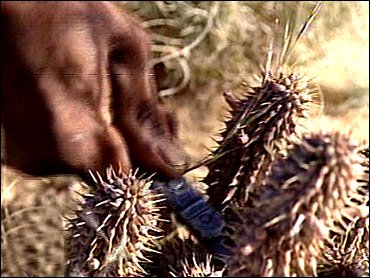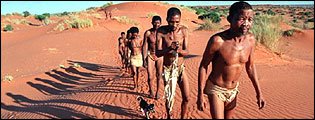The United States has the most rigorous prescription drug approval protocols in the world. Indeed, American pharmaceutical companies often complain that they operate at a distinct disadvantage because of the exhaustive research, peer reviews and prolonged clinical trials the U.S. Food and Drug Administration (FDA) mandates before any prescription drug goes to market. And the fact that more and more Americans are foraging through Canada and Mexico for drugs that are not only cheaper (because of far less rigorous protocols) but also available years before they are sold in America adds credence to corporate whining in this regard.
But, in keeping with the schizophrenic nature of most things American, many of these same pharmaceutical companies rake in billions in profits by selling dietary supplements with virtually no established protocols to ensure their safety and effectiveness. In fact, almost every day new dietary supplements are marketed that promise morbidly obese and pathologically vain Americans miraculous weight loss or non-surgical body sculpting without one morsel of evidence to support these claims.
The lack of regulation in this $40 billion industry is especially troublesome, however, given that more Americans have been injured and / or induced to their deaths by the undocumented and even fraudulent health claims of dietary supplements than from the side effects of prescription drugs.
For example, there’s considerable controversy in the U.S. today surrounding the prescription drug Vioxx (for arthritis pain). Concerns about the health risks associated with this drug forced its manufacturer Merck to pull it off the market over a year ago. And recent revelations that company officials hid information about patients who suffered heart attacks during clinical trials for Vioxx have pharmaceutical, legal and corporate experts predicting doomsday scenarios for Merck; especially considering it has already lost over $30 billion in market value and is facing Vioxx lawsuits in perpetuity).
By contrast, over 100 deaths were associated with the (weight loss) dietary supplement fen phen that saturated the U.S. market in the early 1990s. Yet its manufacturer, American Home Products, was able to settle all claims for the relative paltry sum of $4.83 billion; despite charges by the FDA that its officials knew of the dangers of fen phen long before it was withdrawn from the market.
And, these were hardly the only deaths associated with unregulated dietary supplements in recent years. After all, just over 2 years ago, the FDA was compelled to prohibit the marketing (and advise against the use) of all dietary supplements containing ephedra. But this action was taken only after belated questions were raised about its effectiveness and studies of over 16,000 “adverse events” found that the ephedra was the sole precipitating cause of numerous heart attacks, strokes, and deaths.
 Now comes Hoodia! It is the latest miracle dietary supplement that fat, gullible and lazy Americans have been consuming since last year like the San Bushmen of the Kalahari devouring their first catch in over a week. And, they can thank anorexic-looking Lesley Stahl of the popular TV news programme 60 Minutes for her first person account extolling the virtues of hoodia for turning them onto this new weight loss fad.
Now comes Hoodia! It is the latest miracle dietary supplement that fat, gullible and lazy Americans have been consuming since last year like the San Bushmen of the Kalahari devouring their first catch in over a week. And, they can thank anorexic-looking Lesley Stahl of the popular TV news programme 60 Minutes for her first person account extolling the virtues of hoodia for turning them onto this new weight loss fad.
Ironically, the fact that hoodia is a cactus plant that grows wild only in the Kalahari Desert of South Africa seems to imbue it with marketing credibility. Because the shrewd white men who “discovered” it as a natural appetite suppressant that “fools your brain into believing you are full” have convinced yoyo dieters that just taking hoodia will give them that very fashionable starved-Bushmen look.
However, what consumers get in their hoodia supplements today is a matter of pure conjecture. And, what results they see may stem entirely from that well-documented phenomenon known as the placebo effect. Because, as is the case with almost all dietary supplements, there are no established protocols to determine what amount of hoodia, if any, is effective.
 Of course, it seems completely lost on this fast-food, supersize-everything nation of couch potatoes that the reason hoodia seems to work for the San Bushmen is because they do not have a McDonalds on every corner, do not sit on their asses all day (they have to hunt for food after all) and, for days, hoodia is all they have to eat!
Of course, it seems completely lost on this fast-food, supersize-everything nation of couch potatoes that the reason hoodia seems to work for the San Bushmen is because they do not have a McDonalds on every corner, do not sit on their asses all day (they have to hunt for food after all) and, for days, hoodia is all they have to eat!
Nevertheless, as a former ACE certified fitness trainer, I couldn’t care any less about quick-fix junkies who waste their money trying to get into shape by popping pills. But I am particularly indignant about this hoodia fad because it exploits the unavoidable privations of poor Africans for dubious health and crass commercial purposes. Although, admittedly, my indignation would be appeased considerably if I knew the San Bushmen were benefiting in any meaningful way from the processing and sale of their aboriginal cactus plants.
But it does not bode well in this respect when multinational corporations are fighting over hoodia patents and lots of money is being made, but local representatives for the San Bushmen are being told:
“…just be patient. Help [from thousands of years of oppression, poverty, social isolation and discrimination] is at hand….”
Note: Despite hoodia pills selling like hotcakes in health stores and on the internet for some time now, pharmaceutical giant Pfizer gave up its development and marketing rights to hoodia almost 2 years ago when “making a pill out of the active ingredient seemed beyond reach.”
That left a smaller, less resourceful English pharmaceutical company called Photopharm still pursuing the holy grail of a weight loss potion by marketing hoodia in its natural form, “in diet shakes and bars.”
Be patient indeed….
News and Politics
bestmotoroil says
Great article about hoodia! Hoodia works in 87% http://www.hoodia-hq.com – weight loss, hoodia, diet news.